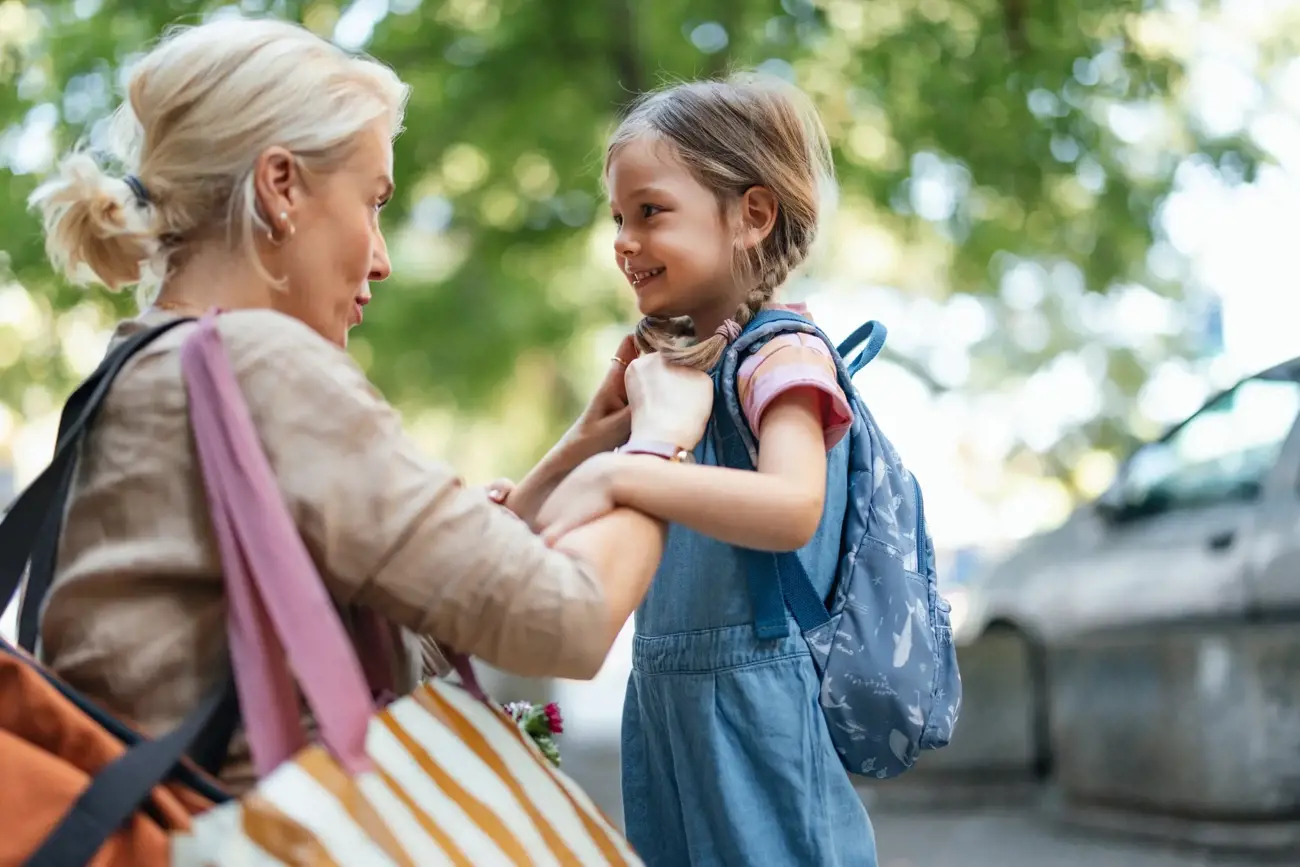Starting school, whether it’s preschool, kindy or primary school is a huge milestone in a little person’s life.
For many children, it’s their first big stretch of independence. A whole day away from parents, learning new routines, making friends, and navigating an unfamiliar environment. It’s exciting, but also big, and new. Change takes time to adjust to for all children.
And while it’s important to sort the practical prep the uniform, the lunchbox and bag. What makes the biggest difference to a smooth start is the quiet confidence your child carries into that classroom.
The “I’ve got this” feeling
So what builds that confidence? And how do we help our children feel emotionally and socially ready for this next chapter?
Why early preparation matters
School readiness isn’t about knowing letters or counting to 100 it’s about how a child feels about themselves and their ability to cope with new things.
And one of the best ways to build this is through play.
Through play children are learning vital skills every day:
Social skills: sharing, taking turns, understanding social cues
Emotional skills: recognising and managing feelings, building resilience
Cognitive skills: problem-solving, language development, creativity
Independence: feeling safe and competent when away from home
Play is so vital in forming all these skills that will help a child in the years ahead and that’s the great news because children are innately very good at play! We just need to make the space for it. Through play and social learning, children start to develop a sense of “I can do this” before they even set foot in a school classroom.

The role of parents in building school readiness
As parents, we play a huge role in helping our children feel emotionally prepared for this transition.
And it starts with something simple: connection.
When children feel safe, loved, and supported, they are far more likely to approach new experiences like school, with confidence and a solid feeling of being loved. This is everything.
Six connection and play based ways to build emotional readiness for school:
1.Do your own emotional prep
First things first: check in with how you are feeling about your child starting school. Children are very tuned into our emotions. If you’re anxious or worried, they’ll likely pick up on it. If you’re calm, confident and positive, that will help them feel safe.
2.Talk about feelings and validate them
Some children will be excited about starting school. Others will feel nervous — or both at once. Whatever your child is feeling, it helps to validate it: “It’s normal to feel a bit nervous when you’re starting something new. Lots of kids feel that way.”
3.Use social stories
Helping children understand what to expect can ease anxiety. You can tell little stories or role-play what a school day might look like — arriving, hanging up their bag, meeting the teacher, having lunch. Visuals and picture books about starting school can also help.
4.Establish routines early
Routines create a sense of safety and predictability. In the weeks before school starts, you can practise the morning routine: getting up, getting dressed, having breakfast, packing the bag — so the first day doesn’t feel like a shock to the system.
5.Practise independence
Give your child opportunities to do little things for themselves — putting on their shoes, opening lunch containers, carrying their own bag. Practising these “I can do it” moments helps build competence and confidence.
6.Build in short separations
If your child hasn’t had much experience being away from you, it can help to practise short, positive separations — with a grandparent, friend, or trusted caregiver. This helps build the understanding that “I can be safe and okay, even when mum or dad isn’t right there.”
The most important ingredient: connection
Above all, remember that connection is key.
In these weeks before school starts, small moments of connection, a shared game, a special outing, simple one-on-one time can fill your child’s emotional cup and help them feel secure enough to explore the new world of school.
When children know they are safe, loved, and seen no matter what - they step into new experiences with just a little more confidence in their step.
So if you’re wondering what “school prep” should really look like?
It’s not just new shoes and lunchboxes.
It’s building a little person who knows:
- I can do this.
- I can ask for help.
- I am safe and loved, even when I’m away from my family.
And with that? They’re more ready than you think.



































